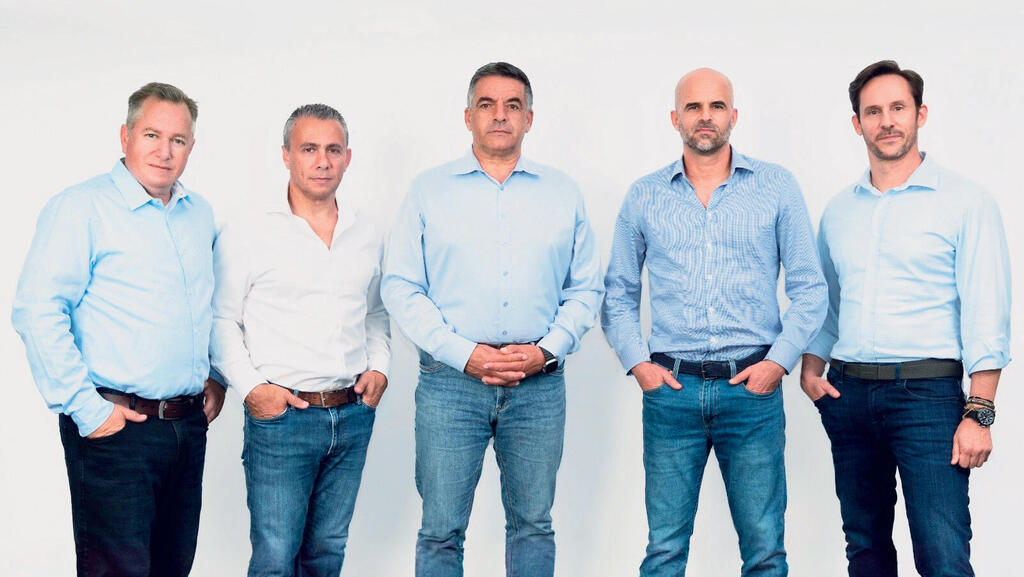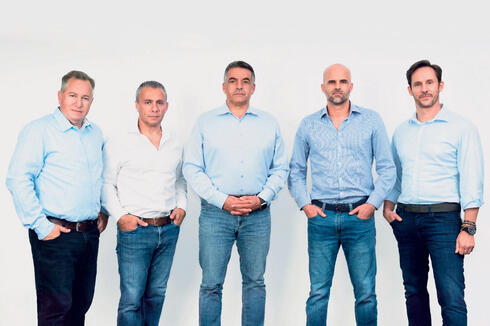
Former Israeli Air Force commander launches defense tech fund
Amikam Norkin, in collaboration with the Key1 fund, is establishing a new venture capital fund, Ace Capital Partners, focused on military startups, with Harel Insurance serving as an anchor investor. The fund has already met with dozens of startups and has begun the investment process.
The Israeli defense tech industry continues to grow. Calcalist has learned that Major General (Ret.) Amikam Norkin, former commander of the Israeli Air Force, is establishing a new investment fund focused on defense, aviation, and space. The fund, named ACE Capital Partners, will have Harel Insurance as an anchor investor. The fund plans to recruit additional investors in 2025, with the effort led by Ben Hamburger, Vice Chairman of Harel Insurance and Finance.
Norkin is launching this fund in collaboration with Brigadier General (Res.) Shimon Tsentsiper, who formerly headed the Air Force's technological division, and with the investment fund Key1 Capital, established by Goldman Sachs veterans Amit Pilowsky, Sarel Eldor, and Danny Akerman. In recent months, Norkin and his partners have met with numerous Israeli defense startups and are already in the process of investing in some of them. While the fund intends to invest in both Israeli and international companies, its primary goal is to nurture and strengthen the Israeli ecosystem in aviation and space
Norkin elaborated on the initiative during Calcalist's Israel-Japan business conference in Tokyo in May 2023, before the outbreak of the current war. He stated, "What is happening in Ukraine should concern every country in the world. The threat of missiles and rockets has been compounded by the addition of drones, UAVs, and cruise missiles. These pose a threat to both the home front and strategic targets, and the technology is becoming widespread and inexpensive." Reflecting these concerns, the new fund is expected to emphasize technologies related to drones and UAVs, focusing on Series A and B investment rounds—stages that are relatively early but not at the seed stage.
After retiring from the Air Force in 2022, Norkin, along with Tsentsiper, founded Aerospace Spirit, a company specializing in strategic consulting and support for companies in defense, aviation, and space. The new fund will be a separate entity, with Norkin and Tsentsiper's company holding a 50% stake. The two will bring their expertise in defense, along with their connections and contracts with military organizations. The business and financial aspects will be managed by the partners from Key1, who retired from Goldman Sachs in 2021 and raised $300 million for their first fund, where Harel was also a major investor. Despite the substantial amount they raised, Akerman, Pilowsky, and Eldor have been cautious in their investments, given the high valuations in the tech industry. Among their few investments are Weka, an AI company that became a unicorn this year, the successful fintech startup FundGuard, and the gaming company SuperPlay.
Related articles:
The defense technology sector has long attracted former senior IDF officers. However, while they traditionally joined large defense companies, the current war in Israel, along with the ongoing conflict between Russia and Ukraine, is changing the rules for startups. These wars have highlighted the challenges faced by the world’s largest armies and the innovative technologies—such as the use of inexpensive drones—that are drawing the attention of venture capital funds. Historically, VC funds were hesitant to invest in defense companies, partly due to ethical concerns, but mainly because of the long development cycles and the limited market of defense ministries, characterized by complex tenders.
Over the past two years, there have been significant changes in this area. The Pentagon has announced the establishment of an innovation division aimed at enabling collaboration with small suppliers and startups outside of the traditional large contracts. Additionally, NATO has recently launched an investment fund with a $1 billion budget to invest in military technologies. Against this backdrop, American venture capital funds are increasingly interested in the defense tech industry, with new funds dedicated to this field being established. Between 2019 and 2023, $33 billion was invested in defense and space-related technologies.
Unfortunately, Israel has something to offer in this area, having endured nearly a year of intense fighting in Gaza. Local funds report that in recent months, dozens of defense-related startups have been founded, primarily by soldiers returning from active reserve duty, bringing with them ideas for technological advancements across various domains, particularly in addressing the critical challenges of drones and missile warnings. U.S. venture capital funds, including giants like Sequoia and Andreessen Horowitz, have taken note of the developments in the Israeli ecosystem, sending delegations and even making some investments. This means that Norkin’s new fund will likely face significant competition.
